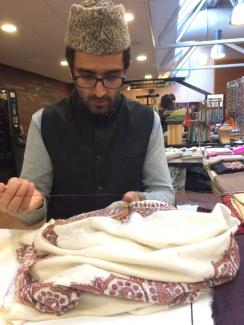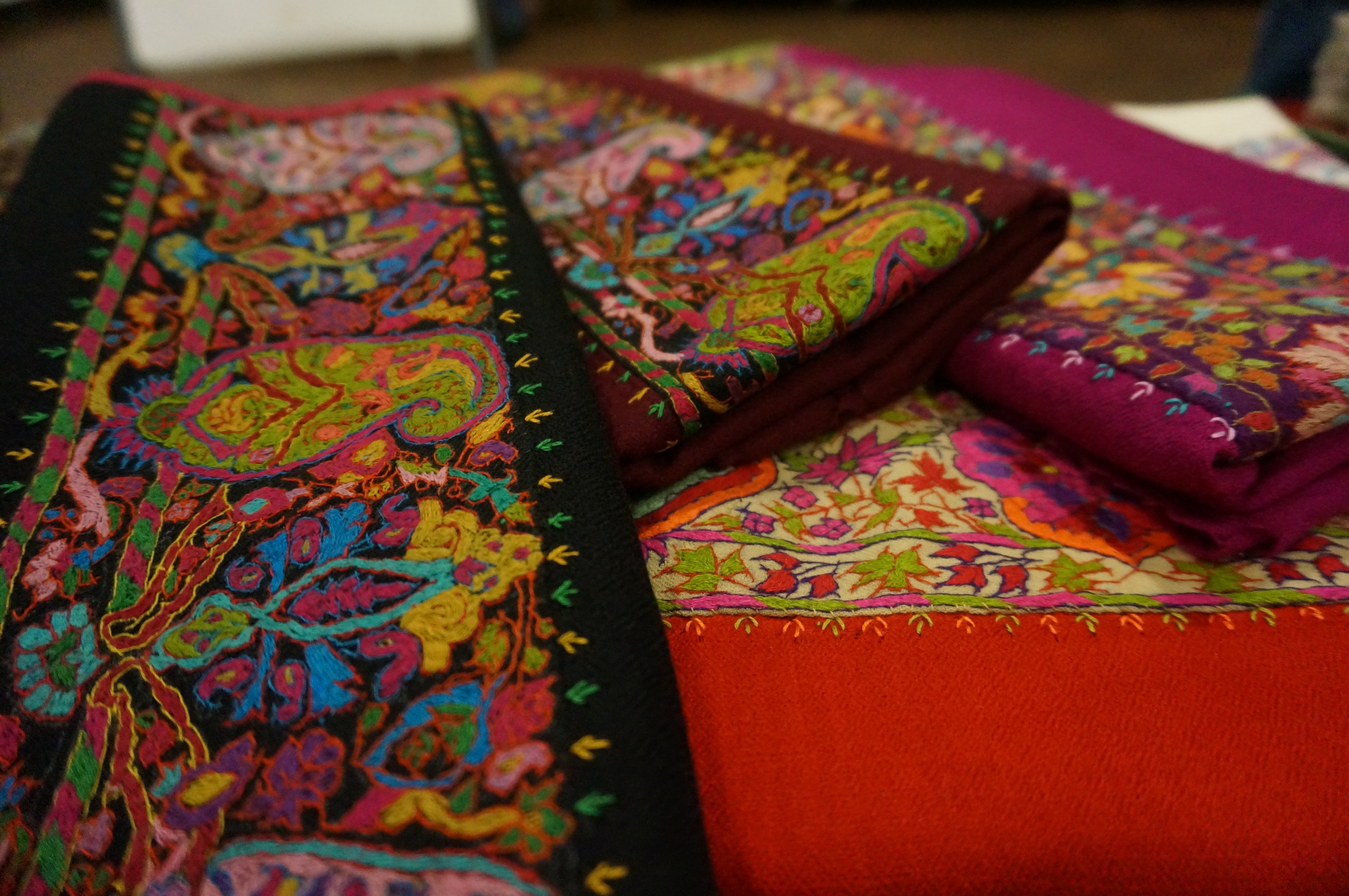
I am an artisan from Kashmir Valley, situated in northern India. Located mostly in the Himalayan Mountains, Kashmir Valley is famous for its beautiful mountainous landscape, lakes, rivers, and gardens. I belong to Kashmir and Kashmir art is in my blood. Historically, Kashmir became known worldwide when its cashmere shawls were exported to other regions and nations.
Kashmir’s economy was only centered around agriculture before the 14th century, until Mir Syed Ali Hamadani travelled from Persia to Kashmir and played a major role in spreading and teaching arts and crafts skills to the people of Kashmir. With the passage of time, the crafts industry spread in the whole valley. Sources consider that Ladakh is the homeland of goats with different kinds of wools; among them is the most popular Pashmina wool goat. Hamadani founded and started this industry in the valley.
Pashmina means woolen in Persian, and it is considered among the softest fibers in the world. Cashmere and pashmina are two names of the same fabric. Making a single shawl goes through many processes with many families. Families are involved in Pashmina goat farming, fiber collection and spinning, weaving, dyeing, design stamping, hand embroidery, and washing. There are different kinds of embroideries like needlework, hook work, and kani work. Shawl embroidery takes months to years to finish a single piece depending on the intricacy of the design and craftsmanship. There is a kind of embroidery which we call durukha (reversible), which makes a shawl usable on either side. This is considered the best craftsmanship.

Artisans carry shawls along with them when they travel. This is the only Kashmir craft that one can make anywhere, in any corner of the house. The spinning of cashmere is only done by women, while hand embroidery can be done by both men and women. The rest of the process of shawl making is done by men.
Afra Kashmir is the brand name of our work and our whole family is involved, along with hundreds of other families associated with us. When we receive bulk orders for handiwork we are able to distribute the commission to artisans all over the region, even in remote areas. Our aim is to reach out to the maximum number of artisans across the valley. We are really happy to express that Afra Kashmir has master craftswomen who are doing intricate embroidery on shawls with very beautiful designs and colors. We have master craftsmen associated with us who are able to complete any requirements and customized orders.
While we are very successful, we still face many challenges like poor marketing and advertising, lack of awareness among buyers, online stores selling fake and machine made imitation products, and inauthentic events/exhibitions worldwide in the name of Kashmir handmade products. Furthermore, there is a lack of social security among artisans and their families, no good health care policy for artisans, and no implementation of wage laws in the country.
We artisans believe that if we get a proper channel to sell our products and educate buyers, this art will last long and we can continue to give the best luxurious products to the world. We believe if we sell directly to the buyers, we can educate them too. We think buyers should have a proper knowledge of the product so that they can buy a genuine product, and this will discourage imitations. We are trying our best to get the proper marketing and selling channels with our own efforts, and will surely take this industry ahead.
To learn more about Afra Kashmir, send an email to contactafra@yahoo.com. Come to our upcoming Cultural Survival Bazaars: July 22–23 in Plymouth, MA; July 29–30 in Tiverton, RI. Visit bazaar.cs.org for more information.
